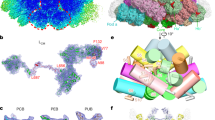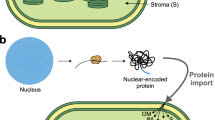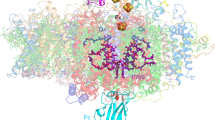Abstract
THE molecular weight of the ‘plastein' precipitated from a pepsin hydrolysate of egg albumen at pH. 4 was found to be about 300 in determinations performed cryoscopically in a phenol solution1. Since the average molecular weight of peptides in pepsin hydrolysate is between 300 and 400 2, no lengthening of peptide chains seems to take place in the formation of plastein, still less protein synthesis, as had generally been thought. For this reason we regarded the plasteins as being constituted of mixtures of cyclic peptides which are formed under the influence of certain proteolytic enzymes from low-molecular peptides in protein hydrolysates1. Of the earlier investigators, Folley3 alone has supported the view of the low molecular-weight structure of plasteins.
This is a preview of subscription content, access via your institution
Access options
Subscribe to this journal
Receive 51 print issues and online access
$199.00 per year
only $3.90 per issue
Buy this article
- Purchase on Springer Link
- Instant access to full article PDF
Prices may be subject to local taxes which are calculated during checkout
Similar content being viewed by others
References
Virtanen and Kerkkonen, Acta Chem. Scand., 1, 140 (1947).
Laine, Ann. Acad. Sci. Fenn., Ser. A. II, Chem. No. 11 (1944).
Folley, Biochem. J., 26, 99 (1932).
Chibnall, J. Intern. Soc. Leather Trades' Chem., 30, 1 (1946).
Fraenkel-Conrat and Cooper, J. Biol. Chem., 154, 239 (1944).
Author information
Authors and Affiliations
Rights and permissions
About this article
Cite this article
VIRTANEN, A., KERKKONEN, H. Structure of Plasteins. Nature 161, 888–889 (1948). https://doi.org/10.1038/161888a0
Issue Date:
DOI: https://doi.org/10.1038/161888a0
This article is cited by
-
Die Synthese von Polypeptiden durch die Wirkung von Pepsin
Die Naturwissenschaften (1950)
Comments
By submitting a comment you agree to abide by our Terms and Community Guidelines. If you find something abusive or that does not comply with our terms or guidelines please flag it as inappropriate.



